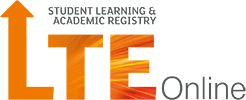It is now well recognised that assessment is a critical driver of student learning, no matter the mode of study, and that well-designed and thoughtfully implemented assessment processes and strategies can provide positive prospects for meaningful, authentic learning.
The central purposes of University assessment are usefully captured in the literature in three categories:
- Assessment-of-learning: making judgements about students’ summative achievement of learning outcomes for purposes of certification and a focus for institutional quality assurance processes;
- Assessment-for-learning: providing formative and diagnostic information about student learning achievement that, in turn, allows active and student-led approaches to be adapted to respond to the changing needs of the learner and recognises the important benefit that feedback has on learning;
- Assessment-as-learning: promoting the active student involvement in assessment, the effective use of feedback, participating in peer assessment, and self-monitoring of progress as key aspects of a student’s long-term learning development.
A feature of modern modular course structures means that assessment tends to have a predominantly summative (assessment-of-learning) function – the generation of marks or a grade – and because of this focus often does not sufficiently consider how to support learning in more sustainable ways (Boud and Soler, 2016). An over-emphasis on marks and grades can lead to strategic student engagement that is qualitatively different to engagement in genuine learning. Such arrangements can lack an authentic character and the opportunities necessary to master the ‘contextualised’ knowledge and technical skills of the discipline.
Whilst principles of good assessment design such as constructive alignment, clear and transparent criteria, and timely and constructive feedback remain key considerations when designing authentic assessment; the promotion of authentic student learning challenges the separation of formative and summative assessment in our learning designs, shifting emphasis instead on to “learning-orientated assessment” (Carless, 2015). When assessment is learning-orientated tasks and contexts are fit-for-purpose: that is, when students are actively involved in contextualised assessment processes that develop their ability to self-monitor and regulate their own learning behaviour, and when feedback is appropriately future facing and can be acted upon in timely and meaningful ways.
It is down to us as educators to find the time and space within our courses to imbue the student learning experience with a productive balance of formative and summative assessment activities, such that students are offered opportunities which clearly signal to them the real-world relevance of assessment tasks, as well as the life-wide value and importance of developing as learners.
Assessment and feedback activity of this nature (assessment-as-learning) develops the kind of learning and evaluative expertise essential for employment and lifelong learning. When developing our hybrid learning designs, we need to find and apply ways of thinking about assessment that have the desired positive and sustained influence on student learning for the long-term. As far as possible we must try to design assessment contexts and tasks that leverage the affordances of available learning technology and tools to foster the kinds of attitudes and dispositions, as well as the knowledge and skills, which learners need for the variety of situations they will be confronted with throughout their professional lives.
What does ‘authenticity’ in assessment involve? What are the key considerations when designing for productive authentic assessment (as-learning)?
To read more about designing for productive authentic assessments see the new LTE Bites No.8 ‘Authentic Assessment’ staff guide – the latest resource in the LTE Bites Assessment series.
Key Sources
Boud, D., & Soler, R. (2016). Sustainable assessment revisited. Assessment and Evaluation in Higher Education, 41(3), 400-413.
Carless, D. (2015). Excellence in university assessment: Learning from award-winning practice. London: Routledge.
